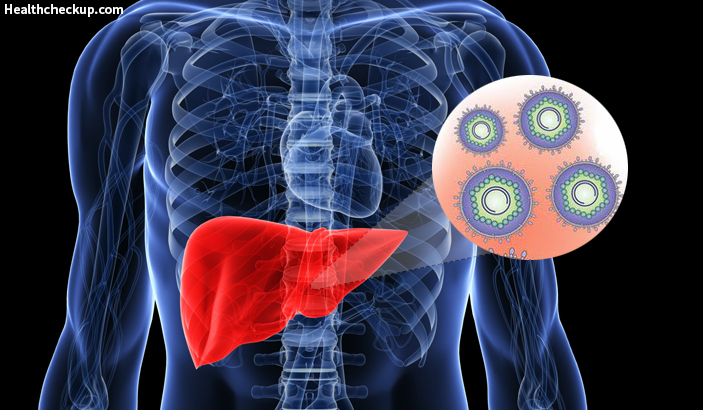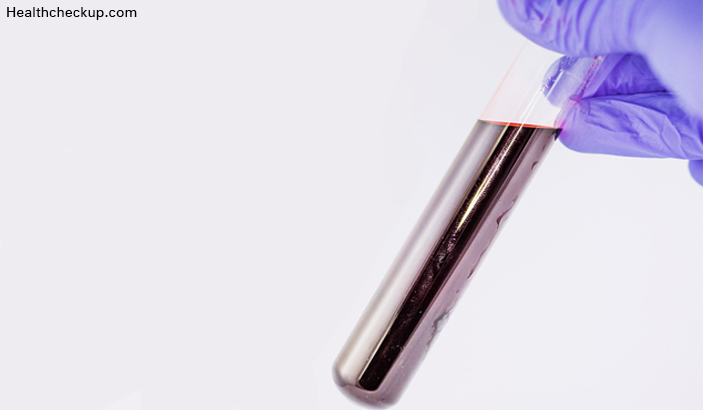HBsAg is the short form for hepatitis B surface antigen. The HBsAg test is ordered by a doctor when he suspects that a person is infected by the Hepatitis B virus. Hepatitis B tests is diagnosed when the doctor finds HBsAg along with other specific antibodies in the blood sample of the patient.
Hepatitis B is a severe liver infection that is caused by the hepatitis B virus or HBV. If the infection lasts for more than 6 months, the Hepatitis B infection is said to be chronic. A chronic Hepatitis B infection increases the risk of the patient for developing liver cancer, liver failure or liver cirrhosis. Most adults infected with Hepatitis B recover fully, but infants and children are more likely to develop chronic Hepatitis B infection.
Hepatitis B is a self-limiting infection that clears itself within 4 to 6 weeks. The HBsAg can be detected in blood in both, acute and chronic infections. Acute infections are those that come suddenly, and chronic infections are those that last for longer than 6 months. In addition to the signs and symptoms exhibited by patients, additional antibodies can be detected in the blood to distinguish between acute and chronic infections.
The Causes of Hepatitis B
Hepatitis B is a transmissible disease and is passed from one person to the other through blood, semen and other body fluids. The common ways by which HBV is transmitted include:
- Sexual Contact: A person may get infected if he/she has unprotected sex with an infected person whose blood, saliva, semen or vaginal secretions may enter the body of the uninfected person.
- Sharing Needles: HBV is also transmitted through needles and syringes that are contaminated with infected blood.
- Mother to Child During Pregnancy: Pregnant women infected with HBV will pass on the infection to their babies during childbirth.
Signs and Symptoms of Hepatitis B Tests
The signs and symptoms of Hepatitis B may range from mild to severe, and will appear in infected persons about 1 to 4 months after they have been infected. The signs and symptoms include:
- Abdominal pain
- Fever
- Joint pains
- Dark-coloured urine
- Loss of appetite
- Nausea and vomiting
- Fatigue
- Yellowing of the skin and the whites of the eyes
Hepatitis B Blood Tests
Hepatitis B tests are blood tests that can indicate if you have an active hepatitis B infection or if you had the infection in the past.
The Following are the Signs of Infection:
- Antigens, which are made by the virus attacking the person.
- Antibodies, which are made in the body to fight the infection.
- Hepatitis B DNA, which is the genetic material of the virus.
Only a single sample of blood is needed for a Hepatitis B blood test, but the test includes 3 parts. All the three parts of the test results are needed to arrive at the conclusion if a person is infected or not. Here’s an explanation of the blood test for Hepatitis B.
- HBsAg (Hepatitis B Surface Antigen): A positive HBsAg test result means that the person is infected with hepatitis B tests. This test detects the actual presence of the hepatitis B virus in the blood. A positive test result prompts further testing to determine if the infection is acute or chronic. A positive HBsAg test result means that a person is infected and can spread the Hepatitis B virus to others through his blood.
- HBs AB (Hepatitis B Surface Antibody): A positive result means that the person is protected against the hepatitis B virus. This could be due to the hepatitis B tests vaccine or a successful recovery from a past hepatitis B infection.A positive anti-HBs (or HBsAb) test result indicates that you are protected against the hepatitis B virus and cannot be infected, and also you cannot spread hepatitis B to others.
- HBcAB (Hepatitis B Core Antibody): A positive result could indicate both, aa past or current hepatitis B infection.This test can only be fully understood by knowing the results of the HBsAg and anti-HBs tests. A positive anti-HBc (or HBcAb) test result requires that you talk to your health care provider for a complete explanation of your hepatitis B tests status.
The HBsAg Test Procedure
Since a test for Hepatitis B is a blood test, a blood sample is taken by a lab technician as follows:
- An elastic band is wrapped around the upper arm
- The needle site is cleaned with alcohol
- The needle is inserted into the vein
- A tube is attached to the needle to fill it with blood
- The band is removed from the arm once enough blood is collected
- A gauze pad is applied over the needle site as the needle is removed
- A bandage is applied over the site
Why is Hepatitis B Testing Done?
The testing is mainly done to:
- Find the type of infection, i.e., to make out if the infection is acute or chronic
- Screen people who have greater chances of getting or spreading hepatitis B. This includes healthcare professionals such doctors, dentists, and nurses.
- Screen blood donors and donor organs to help prevent the spread of hepatitis B.
- Find out if the Hepatitis B vaccine has worked
- Check how well the treatment for chronic Hepatitis B test is working
Treatment
There is no precise treatment, cure, or medication for an acute HBV infection and the supportive care depends on the symptoms.
If you think you’ve been exposed to the virus, meet your doctor within 2 weeks. He’ll give you a vaccine and a shot of hepatitis B immune globulin, a protein that will boost your immune system and help it fight off the infection.
If you do get infected, the doctor will advise bed rest and advise you to avoid drugs and supplements that could harm your liver. You will also be asked to avoid alcohol.
If the infection lasts for more than 6 months and the HBsAg test is positive, the doctor will call it “chronic active Hepatitis B,” and you may be prescribed any one of these medications: Interferon alfa, Lamivudine, Entecavir or Tenofovir.
Medically Reviewed By

I am an experienced Medical/Scientific writer with a passion for helping people live a happy healthy life. My thirst for writing has followed me throughout the years – it is there when I wake up, lingering at the edges of my consciousness during the day, and teases me at night as I go to sleep.











